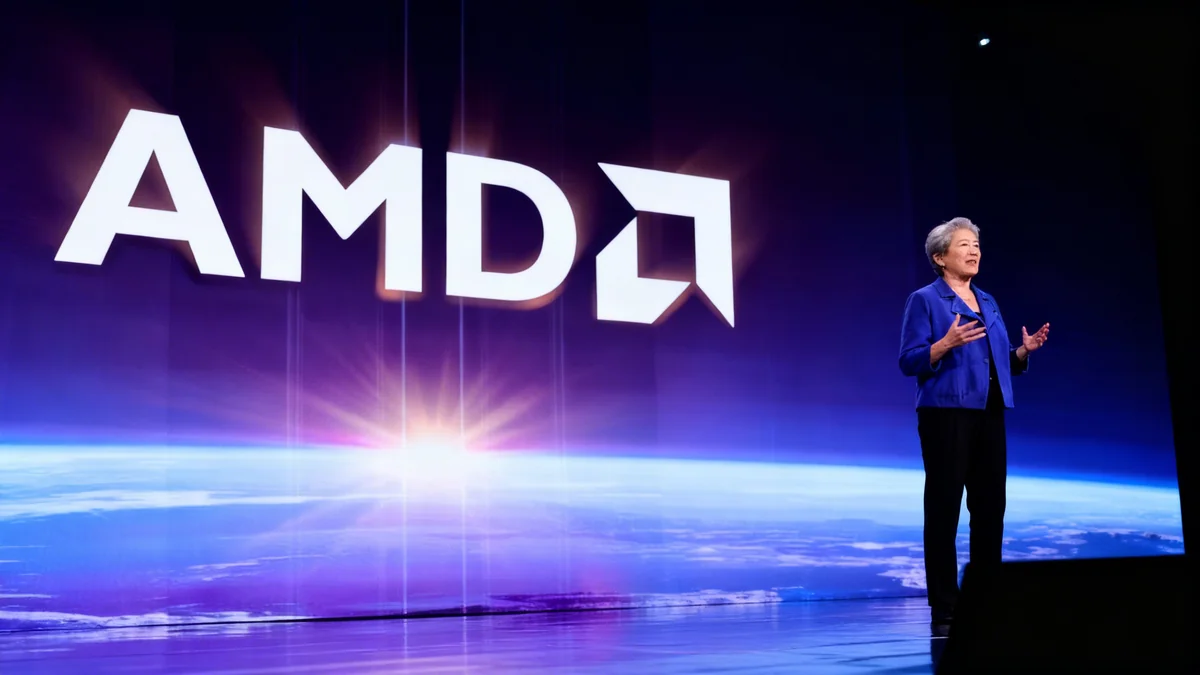Amazon's recent earnings report has sent a clear signal to investors: massive spending on artificial intelligence is not just a cost, but a critical investment for future growth. The technology giant's substantial capital expenditures in AI infrastructure are beginning to yield returns, calming market anxieties and reinforcing a new strategy among the world's largest tech companies.
The company's performance, particularly within its cloud computing division, Amazon Web Services (AWS), suggests that the high-stakes gamble on AI is paying off. This has not only boosted Amazon's stock but has also ignited a broader rally in AI-related stocks, indicating a renewed confidence in the sector's long-term viability.
Key Takeaways
- Amazon's latest earnings report shows that its heavy investments in artificial intelligence are starting to produce positive returns.
- The growth in its cloud business, AWS, is a primary driver of this success, reassuring investors about the company's long-term strategy.
- The positive results have triggered a wider stock market rally for companies involved in the AI sector.
- This trend confirms a broader industry strategy where major tech firms are prioritizing massive capital expenditure on AI to secure future market dominance.
A Strategic Shift in Corporate Spending
For months, investors have watched with a mix of excitement and apprehension as tech giants poured billions into artificial intelligence. The central question has been whether these colossal expenditures would translate into tangible profits. Amazon's latest financial disclosures provide one of the first concrete answers.
The company has confirmed it will continue its aggressive spending strategy. This approach is centered on building out the vast infrastructure required to power the next generation of AI applications, from large language models to complex data analytics tools for enterprise clients.
According to company leadership, the focus is on long-term growth rather than short-term austerity. Andy Jassy, the Chief Executive Officer of Amazon, has emphasized the significant growth potential he sees within the company's cloud division, directly fueled by the surging demand for AI services.
The Broader Tech Landscape
Amazon is not alone in this endeavor. Its primary competitors in the cloud and AI space, including Microsoft and Google, have also committed to multi-billion dollar investments. This has created an arms race for computing power and talent, fundamentally reshaping the technology industry's financial landscape.
The Engine Room: Amazon Web Services
The success of Amazon's AI strategy is most visible in the performance of Amazon Web Services (AWS). As the largest cloud provider globally, AWS is uniquely positioned to capitalize on the AI boom. Businesses of all sizes rely on its infrastructure to develop, train, and deploy their own AI models.
The recent earnings report highlighted a significant uptick in demand for AI-specific services on the AWS platform. This includes access to powerful computing chips, foundational models, and a suite of tools designed to make AI development more accessible for corporate clients. This surge in demand is a direct return on the company's infrastructure investments.
Market Reaction
Following the release of the earnings report, investor sentiment shifted positively. The results were seen as a validation of the high-spend strategy, suggesting that the initial phase of heavy investment is now transitioning into a period of profitable growth. This has helped buoy not only Amazon's stock but the entire tech sector.
Analysts note that the growth in AWS is a key indicator of the health of the broader technology economy. As more companies integrate AI into their core operations, the demand for underlying cloud services is expected to continue its upward trajectory.
Investor Confidence and the AI Stock Rally
The positive news from Amazon has had a ripple effect across the stock market. Companies that are part of the AI supply chain, from chip manufacturers to software developers, have seen their valuations rise. This indicates a renewed investor belief that the AI revolution is a sustainable, long-term economic trend.
The market's reaction suggests that the narrative around tech spending has changed. Previously, high capital expenditures might have been viewed as a drain on profits. Now, they are increasingly seen as a necessary prerequisite for competing in an AI-driven world.
"If there was any doubt about the tech giants’ business strategy to spend heavily, this week’s earning reports suggest it will continue apace — at least for now."
This sentiment, echoed by market analysts, underscores a fundamental shift. The ability to invest heavily in AI is now a key differentiator between market leaders and the rest of the pack. Companies that can afford to build and scale their AI capabilities are expected to dominate their respective industries for years to come.
The Road Ahead for Big Tech
While the recent results are encouraging, the strategy is not without risks. The AI landscape is evolving rapidly, and today's leading technologies could be obsolete tomorrow. This requires companies like Amazon to remain agile and continue investing in research and development.
Key areas of future investment will likely include:
- Custom Silicon: Developing proprietary chips optimized for AI workloads to reduce reliance on third-party suppliers.
- Generative AI Applications: Building new consumer and enterprise-facing products that leverage the power of large language models.
- Global Infrastructure Expansion: Constructing more data centers around the world to meet regional demand and comply with data sovereignty regulations.
- Talent Acquisition: Competing for the world's top AI researchers and engineers to drive innovation.
For now, the strategy appears to be working. Amazon's willingness to spend big on the future of technology has calmed investor nerves and set a new benchmark for what it takes to compete at the highest level. The entire industry is watching closely to see if this momentum can be sustained.





